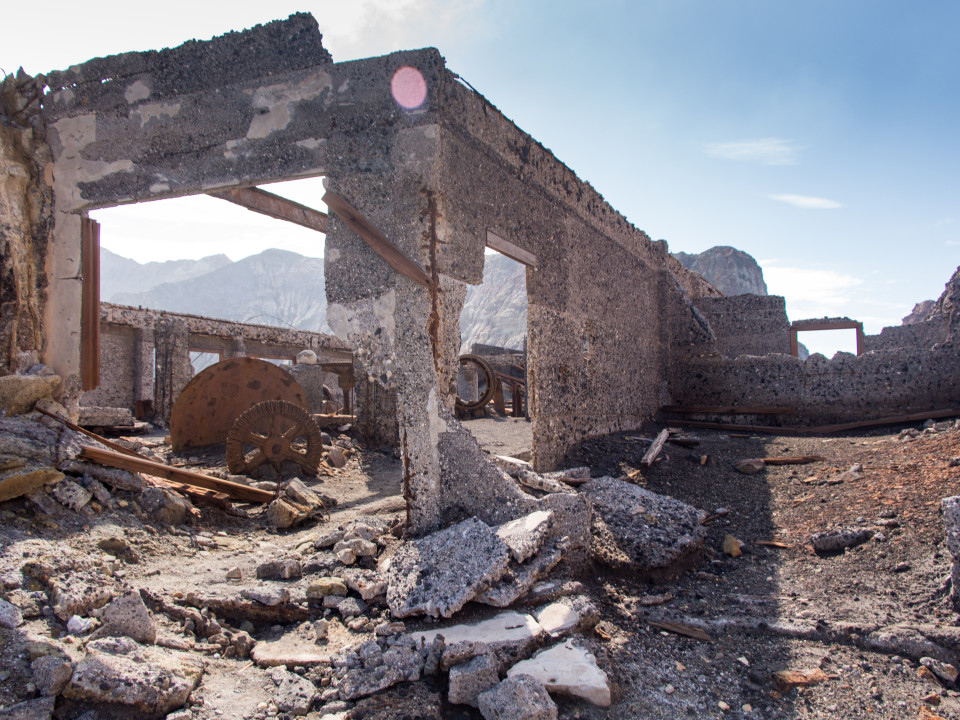Organisational Toxicity - an issue of Justice

The capacity to thrive is directly connected to environment. In fact thriving is dependent on context. Self-help guides are occasionally useful, but the truth is that some environments kill, maim and destroy. A guide on how to survive an earthquake is useful, until the building falls down on your head, or the earth opens up beneath your feet.
Much of the advice given about resilience and thriving advice is aimed at the individual. And, yes, this is good advice in the main. It is applicable and can be included in any good guide to thriving and building resilience.
However, there are times and places where self-help guides are not sufficient. There are some contexts that are so unhealthy that thriving is impossible, and survival is threatened. Unfortunately one of those contexts might be the organisation that employ us.
And a factor that is often overlooked when examining individual resilience in the face of organisational harm is that of justice.
For 'justice' is not merely an accounting against a legal framework. It is also at the heart of our ability to thrive. Perceptions of justice are extremely powerful resilience factors.
Organisations can be toxic. In the same way that shell-fish can be toxic, and ketamine is toxic and a bath of acid is toxic. In climate conversations we talk of ‘ecological collapse’ being the result of increasing environmental toxicity. We see species threatened as an ecology collapses. It doesn’t really matter how resilient a dolphin is when the only food around is plastic..
Organisations can become toxic, and through injustice damage the health of staff
The environment of an organisation can become toxic, and this may be a stage towards collapse. One of the first factors to be damaged during collapse is that of perceived and real ‘justice’ inside a failing organisation.
‘Organisational Justice’ is the term coined to examine aspects of wellbeing in corporate contexts. Organisational Justice appears to be connected to employee wellbeing and the capacity to thrive. According to Colquitt (2001) organisational justice has four specific components;
- Distributive justice - perceptions that fairness exists in the allocation of rewards
- Procedural justice - perceptions of fairness in decision-making procedures where employees opinions are valued
- Interpersonal justice - perceptions of fairness in treatment received from the organisation and managers
- Informational justice - perceptions of the extent to which explanations given are comparable with decisions reached
According to Babic and colleagues (2015) Organisational Justice directly relates to employee wellness. Their extensive study and discussion (which I recommend reading) indicates the very strong link between the perception of support given employees by the organisation and measures of wellbeing. This perception of support is connected to the notion of Organisational Justice.
As individuals we may accept a certain level of injustice in return for a career with meaning, or an income that permits us to engage in other activities, or as a stepping stone to another location or job.
But, with all issues of justice, there comes a point when the toxicity overcomes the rewards. And when the ‘poison’ at work begins to infect the health of external and personal relationships and networks.
Organisational collapse may be one of these times.
Organisations have a significant advantage over individual humans. An organisation can avoid responsibility for impacts on employees. Especially after a collapse. In essence, and in law, an organisation that ‘closes down’ no longer exists. It completely vanishes. And all the people that made the decisions that permitted the organisation to fail, and then close, are, by legal definition, not responsible.
In some very rare cases, of course, where criminal or civil liabilities can be clearly demonstrated, individuals may appear before the courts. It is worth remembering, however, that even after the tectonic collapse of the finance industry in the 1990’s virtually no individuals were held accountable in a court of law.
In organisations with a focus on community services, humanitarian endeavour, or education, it is essentially unheard of that owners and managers of failed organisations will be held legally accountable. Even if they are, it is extremely unlikely that previous employees will receive any recompense.
This is an issue with perception of justice. It is not an issue of applied justice. But, as Babic et al (2015) report perceptions of injustice appear to be significantly connected to wellbeing.
So, what to do?
People who enter the so-called ‘helping professions’ seem to be very forgiving and gracious in relation to organisational mismanagement and mistreatment. Maybe that is part of the personal profile. An attempt to see the good in everything and everybody and work towards positive outcomes. The ability to take the rough with the smooth, to stay in the kitchen when the stove is on fire.
But there is also the possibility that organisations might use this graciousness to the detriment of employees. The abuse of this graciousness may become dangerous and even toxic. In effect this practice can become a form of exploitation of peoples values and beliefs.
Organisations need to develop actual practices that provide real support services to staff who are ‘let go’ or end their contract or, in the worst extreme, lose their jobs when the organisation collapses. Doing so may be strategically and economically challenging but surely it is ethically important?
Maybe an organisation could take out a ‘Collapse Insurance policy’? Not for the owners or shareholders, but for the staff. Such a policy could specifically provide support services to employees should the company collapse. If this was funded on an ongoing basis, as with other employee insurances, it will not impact company finances and would demonstrate in a real way that the organisation does, in fact, value its staff.
And maybe we, as staff, might need to develop the critical skills of assessing threats from within the workplace, and dealing with them as they arise. Or, alternatively, recognising the point at which the fire in the kitchen has got totally out of control and the building is burning to the ground. At that time it is time to get out.
Justice, and perceptions of justice, clearly influence employee wellbeing. Which means they either enhance or subdue the capacity to thrive.
It is past time to apply the filter of Organisational Justice to organisations as part of our assessment of their capacity to build resilience.
References
Colquitt, J. A. (2001). On the dimensionality of organizational justice: A construct validation of a measure. Journal of Applied Psychology 86: 386–400, DOI: https://doi.org/10.1037/0021-9010.86.3.386
Babic, A., Stinglhamber, F. & Hansez, I., (2015). Organizational Justice and Perceived Organizational Support: Impact on Negative Work-Home Interference and Well-being Outcomes . Psychologica Belgica . 55 ( 3 ) , pp . 134–158 . DOI: http://doi.org/10.5334/pb.bk
Read next
A Brief Collapse of Time
We are in lockdown. What day is it? One of the most common comments on social media is the old joke about yesterday, today, tomorrow, everyday.
Read more50 Dead - Resilience Reflection #3 - Social Cohesion
We know that relationships are both protective and growth-promoting.
Read more50 Dead - Resilience Reflection #2 - Leadership
Leadership and resilience are interconnected. This isn’t a new finding, of course. But rarely do we experience examples of how leadership supports, mediates and builds leadership.
Read more

